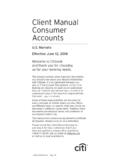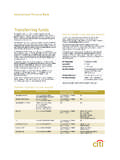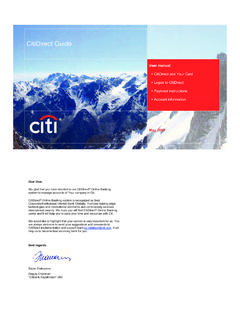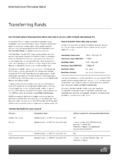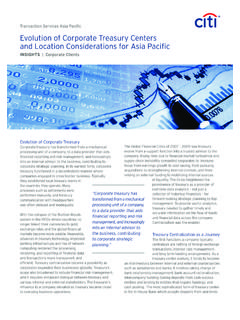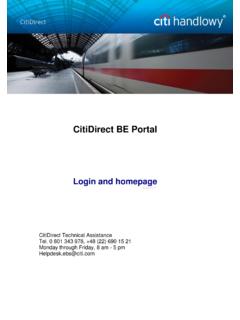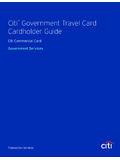Transcription of Know Your Customer Utilities - Citi.com
1 Treasury and Trade SolutionsIt is a costly and administrative-intensive exercise for banks, each satisfying its own requirements with thousands of employees conducting due diligence, document collection and data entry. However, given that all banks use the same types of data and interact with the same clients, there is an opportunity to reduce costs by engaging third-party data aggregators that provide this service to all banks. This opportunity has been discussed for many years so why hasn t it been successful?
2 1. Understanding know your Customer (KYC) UtilitiesA. The Vendors KYC Utilities are facilities managed by third-party platforms that aim to streamline the collection and exchange of data between banks and their clients, while maintaining appropriate privacy controls A variety of technology providers, consultancies and data providers not fewer than ten in the last two years have announced partnerships of some form to set up a utility Limited to the collection of data ( owner profile, company address)
3 And documentation ( maintenance of passport copy and other onboarding records) No visibility into the client s business operations ( type of payments, amounts) B. The Industry Industry is still in its infancy, and without a clear market leader know your Customer UtilitiesWhether individuals, legal entities or correspondent banks opening accounts or executing high-risk transactions, financial institutions are often responsible for performing initial and ongoing know your Customer (KYC) screening.
4 KYC, a broad term, includes the identification of the client profile and an understanding of their Markit & Genpact Thomson Reuters DTCC 1 Bank 2 Bank 3 Bank 4 Bank 5 Bank 6 Bank 7 Bank NCorporatesOther Bank Account HoldersPublic SectorFinancial Institutions Most offerings are starting with a specific target market ( SWIFT on financial institutions, Thomson Reuters on corporates, etc.) with a view to extend to all types of bank clients Approach is consistent with banks practice of relying on external sources for certain data C.
5 Business Model Bank clients generally get the service for free Banks pay either a flat fee annually, or based on usage. As the cost is shared across the industry, banks are typically better off than if they had invested in their own systemsTreasury and Trade Solutions2. Multiple Emerging Platforms Supported by BanksUtilityDepository Trust & Clearing Corporation (DTCC)KYC Exchange NetMarkit and GenpactSWIFTT homson ReutersFocusCollection and validation of client data and documentationCollection and maintenance of data uploaded by bank clientsEnd-to-end management of company data and documents Collection and distribution of bank KYC data Central repository for corporate documentation and dataTarget Market/ClientAsset Managers, Hedge Funds, Corporates, bank clientsAsset Managers, Hedge Funds, CorporatesCorrespondent Banks ( bank doing business on behalf of another)
6 CorporatesKey Bank ParticipantsBNY Mellon, Barclays, JPMorgan, Goldman SachsStandard Chartered, Commerzbank, SocGenCiti, Deutsche Bank, HSBC, Morgan StanleyCiti, JP Morgan, Deutsche, HSBC, Standard CharteredUndisclosedLaunch/Go liveNot live (ETA 12/2014)January 2014 May 2014 May 2014 March 2014 GeographyGlobalGlobalUS, UKGlobalUS, Europe, AsiaDifferentiator/WeaknessComprehensive view of legal entity, with supporting data and document Claim to be the first KYC utility to go live Partnership of deep expertise in technology and financial data Data quality checking and data supplementation/ enrichmentNot a full-blown registry until major players join ( Citi, JP Morgan)3.
7 Key Benefits, Risks and Challenges of Utilities versus Traditional KYC for Corporate ClientsKey BenefitsRisks and Challenges Remove the need to provide KYC documentation to every Bank Avoid periodic confirmation of information validity Enhanced data privacy with fewer copies of sensitive documents floating in the ecosystem Easier and shorter turnover for new account opening Standardization of Country/Bank KYC documents required for account opening in the long-term Confidential data may be less secure
8 Outside the Banks Limited control over access to confidential data 4. Key Benefits, Risks and Challenges of Utilities versus Traditional KYC for Banks Key BenefitsRisks and Challenges Lower costs to collect, assess and update client information Enhance client experience as banks leverage available data Data is continuously stored on the cloud platform Meet KYC regulatory requirements and nuances more effectively for global operations Bank still liable when data on registries is compromised Uncertainties around cross-border data privacy issues Country/Bank differences for legal status of the document, format.
9 Or content of documents Uncertainty on how regulators may respond as utility services gain traction External sources for data may be less reliableAreas for Further Development: The business case for using KYC Utilities is still evolving. Banks retain the liability of counterparty data and still need to validate it regardless of the source, potentially retaining their significant compliance costs. The success of initiatives also hinges on critical mass adoption, which is partly independent of bank or utility provider efforts.
10 Regulators have a critical role to play, primarily in approving and supporting these new concepts, but also standardizing actual requirements rather than leaving them to branch interpretation as is common practice today. Regulators should also require KYC utility processes to be documented and available for inspection to promote greater transparency and accountability in the niche ecosystem. Finally, data privacy issues, especially for Utilities that operate across borders, need to be addressed. To that effect, utility providers are increasingly presenting to regulators the case for assisting banks in this and Trade 2014 Citibank, All rights reserved.
